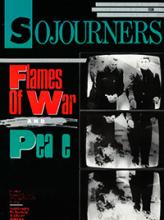As this is written, the congressional hearings on the Iran-contra scandal have just reached the end of phase one, dealing mostly with the secret support operation for the Nicaraguan contras. By the time you read this, the second phase on the illegal diversion of funds from the Iran arms sales to the contras will be well under way.
In fact the mute Marine, Lt. Col. Oliver North, is scheduled to break his monkish silence about the time this issue reaches our subscribers. One of the perils of monthly journalism is that a lot can happen in a month, perhaps even the discovery of that well-known "smoking gun."
But so far the story of the Iran-contra investigation has at least as much to do with what hasn't happened as what has. And there are patterns both to what's happening and what isn't that make an interim assessment worth the risk.
As many of us feared, the Iran-contra investigation is focusing almost exclusively on the finer points of bookkeeping and bureaucratic procedure and mostly ignoring the larger questions of political morality. Even the shady-to-barbarous character of the Nicaraguan contra leadership has gone unexamined.
When contra chieftain Adolfo Calero appeared before the committee, little was said about his organization's systematic atrocities against Nicaraguan civilians or even about the persistent reports of contra drug-running. To most committee members, the existence of a U.S.-funded and -directed terrorist war waged in direct violation of U.S. and international law seems less scandalous than the profit that retired Air Force Maj. Gen. Richard Secord, et al. took on their contra weapons sales. It's as if Congress had called in a notorious Mafia leader but only questioned him about the use of loaded dice in one of his casinos.
Read the Full Article

